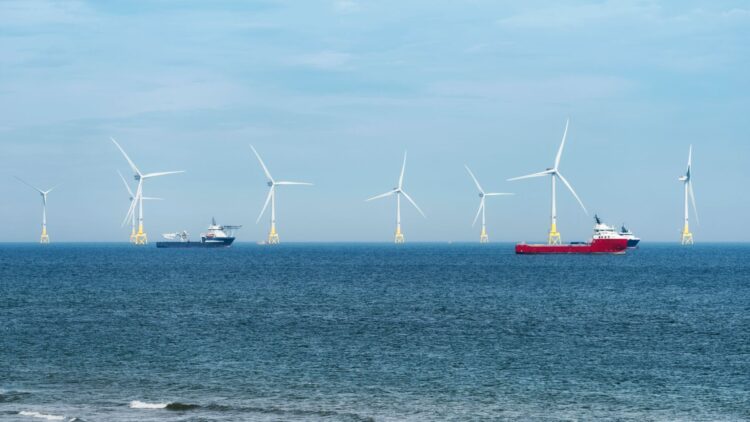Australia has decided to postpone its first offshore wind energy auction, initially scheduled for this year in the state of Victoria. The reason for this postponement can be explained by several factors, perhaps the most impactful being financial. With a struggling investment market coupled with rising industry costs, the project’s viability for this year has been compromised, also casting doubt on the country’s energy transition progress. Although the government claims the cancellation aims to increase project competitiveness, doubts about the future of renewables are being raised.
Australia faces challenges in making offshore wind energy auction viable
The auction was scheduled to be held in the Gippsland region, considered a good area for the project due to its favorable wind conditions. The initial goal was to ensure the bidding for fixed-price energy supply contracts between companies under the contract-for-difference model, which provides greater financial predictability for investors by guaranteeing a minimum price for the energy generated, even in market fluctuations conditions.
However, according to Energy and Resources Minister Lily D’Ambrosio, holding the competition now could result in little participation from companies.
“As the global market for offshore wind investment changes, we’re making sure the auction is competitive and attractive and will release a new timeline for this process later this year,” she said.
Investors show caution in the face of an unstable economic scenario
The main justification for the postponement is related to changes in the global renewable energy market, where investors are more cautious in the face of inflation, but also due to political speeches directly criticizing the sector, especially coming from the United States.
Given this context, the government then decided to revise the calendar, promising to announce a new schedule by the end of the year. Although the postponement is seen as a setback, this decision could prevent mistakes common in other countries, where rushed bidding processes have resulted in financially unsustainable projects.
Companies’ withdrawal from the project accentuates the climate of uncertainty
Overall, the offshore wind energy sector in Australia is not going through a prosperous period. Origin Energy, one of the leading companies in this sector, announced the suspension of its plans to build a wind farm in Gippsland, costing billions of dollars. It stated that the main reason for the cancellation of these plans is the inability to meet the deadlines imposed by the Victorian government.
Additionally, BlueFloat, a Spanish company, abandoned one of its projects, considered one of the most advanced in the region, citing adverse market conditions. Prior to this, Norwegian company Equinor had also abandoned the development of a wind farm in New South Wales, sending a message that the risks were too high for some investors.
With all these recent withdrawals from leading companies and now adding the auction’s delay, uncertainties about Australia’s ability to accelerate its transition to offshore wind power are rising. Although the country has ambitious goals for reducing emissions, the difficulties show that offshore projects still face a long road to becoming a reality.
The impact of the postponement on consumers and the energy transition
This topic has direct implications for the lives of Australians. Offshore wind energy is seen as crucial for ensuring energy security and reducing costs in the long term. Because they have a much higher generation capacity than onshore wind farms, these projects could help stabilize the power grid and reduce electricity bills, directly impacting the population’s economic health.
The postponement of Australia’s first offshore wind energy auction represents a mix of caution and frustration. On the one hand, it avoids a deflated bidding process that could jeopardize the sector; on the other, it postpones investments considered crucial to the energy transition. It highlights how transforming climate ambition into reality depends not only on targets but also on aligned and sustainable market conditions.


